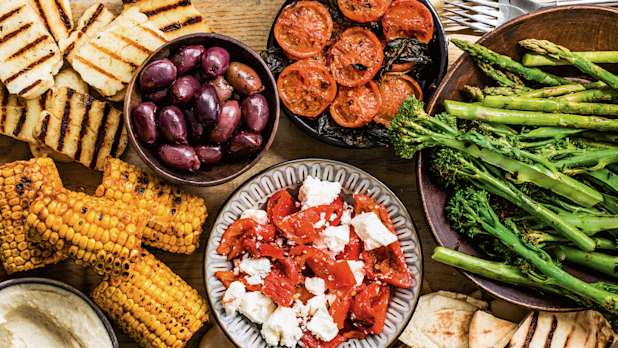
Co-op’s approach to healthier, more sustainable diets
Get in depth information about Co-op’s approach to making it easier for you to make healthier, more sustainable choices.

The human body needs a number of nutrients in order to function properly. Below we look at different nutrients and how you can incorporate them into your diet.
Vitamin D
This contributes to the normal absorption of calcium and to the maintenance of normal bones. Children from the age of 1 year and adults need 10 micrograms of vitamin D a day.
Here in the UK, we can make Vitamin D in our bodies from direct sunlight between March to September. However, from October to the end of February you may struggle due to less sunlight and might want to ask your GP if you need a supplement.
There are some food sources of Vitamin D which you can include in your diet:
Calcium
Calcium is needed for the maintenance of normal bones and teeth. Adults (over 19 years old) need approx 700mg calcium a day. This can usually be achieved through a 200ml glass of milk, a 150g yogurt and a 30g piece of cheese the size of a matchbox. Other sources include:
Iron
We need iron in our diet for several reasons. It contributes to the normal formation of red blood cells and haemoglobin, normal oxygen transport in the body, and the reduction of tiredness and fatigue.
Women aged 19-50 years have a higher requirement for iron as they lose it during their menstrual cycle. In the UK, teenage girls and women have lower intakes of iron than the recommendation. This may lead to iron deficiency anaemia where symptoms include tiredness and lack of energy, pale skin and shortness of breath. Speak to your GP if you think you may be iron deficient.
Sources of iron include:
Potassium
Potassium contributes to the normal functioning of the nervous system and the maintenance of normal blood pressure.
Sources of potassium include:
Selenium
This contributes to the normal function of the immune system. Sources of selenium include:
Magnesium
Magnesium contributes to the reduction of tiredness and fatigue and contributes to the normal functioning of the nervous system.
Sources of magnesium include:
Vitamin A
Vitamin A contributes to the maintenance of normal vision and to the normal function of the immune system.
Sources include:
As liver and liver products are rich in Vitamin A, it’s recommended you don’t eat it more than once a week.
Beta carotene
Beta carotene found in carrots, apricots, mango and green leafy veg converts into Vitamin A in the body so try to include these in your diet too.
If you’re pregnant, eating too much foods high in Vitamin A can harm your baby, it is recommended that you avoid liver and liver products.